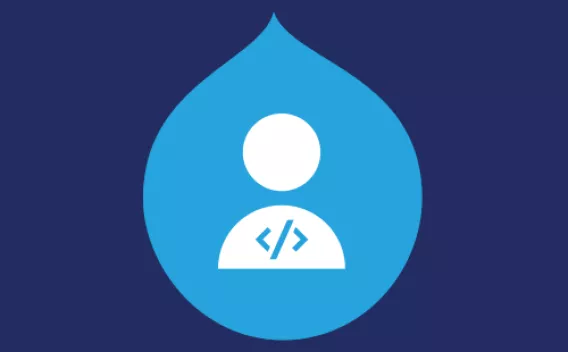As Drupal 8 was approaching release velocity in 2015, Chapter Three, a digital agency in San Francisco, decided to go all-in on the new version.
Chapter Three made a commitment to build new sites on Drupal 8. The company hired a Drupal core maintainer and allowed him to work full-time on Drupal 8. Chapter Three’s developer team, 25 strong, were trained on Drupal 8 and began actively participating in the Drupal 8 issue queue. The team also held weekly Drupal sprints focused on module porting.
In the 2 1/2 years since Chapter Three made the commitment, its contributions to Drupal 8 have been impressive. The company has helped port more than a hundred modules to Drupal 8, more than 3,000 commits are credited to Chapter Three employees, and Chapter Three has built and launched close to a dozen Drupal 8 sites.
Acquia wanted to know how this substantial investment in Drupal 8 fared for Chapter Three. We asked John Faber, managing partner at the San Francisco-based digital agency. John has been working in the Drupal community for the past thirteen years as a Drupal developer, architect, and sales consultant. He is deeply involved in the SF Drupal scene, and runs the San Francisco Drupal Users Group and Users Helping Users.
What has been the major business benefit of Chapter Three’s Drupal 8 contributions?
The biggest benefit has been how motivated my development team has been, knowing they are giving back. Working with Drupal 8 core developers created a dynamic, collaborative environment for them.
I believe that our commitment, 2 ½ years ago, is one of the key reasons why Chapter Three is excelling in Drupal 8 development right now; our developers were motivated to challenge themselves and build on Drupal 8.
Have there been any unexpected problems?
Oh yeah, we did run into some crazy problems working with Drupal 8 so early. We launched our first site while Drupal 8 was still in beta. If not for core developers on staff, we would have not been able to solve some of the early issues that we encountered. We still have that in-house advantage today, ensuring that Drupal 8 core bugs don’t block development.
So you’re sleeping better at night?
Bugs can be scary for companies that don’t have solid connections in the Drupal developer community and don’t understand how to resolve them. Our in-house expertise has empowered everyone at Chapter Three.
Did it take awhile for business demand to catch up with your Drupal 8 expertise?
Last year, everybody was still learning Drupal 8 and it was an exciting time for that. This year, there has been a change in the tide. Chapter Three is receiving many Drupal 8 site requests from large, enterprise companies. These companies are finding that we are class leaders through sites like Drupal.org.
And because of your contributions, Chapter Three is high on Drupal.org marketplace page?
Yes and Drupal.org is a powerful marketing medium. At a recent DrupalCon, Dries talked about how companies that contribute should rise to the top. Contributing isn’t limited to writing code, it includes helping people and working on the issue queue -- another area where we’ve invested heavily. Our efforts mean that when companies are looking for a Drupal 8 development team, they can tell Chapter Three is a leader, and that translates into enterprise sales.
Has your in-house expertise helped when you encounter Drupal 8 modules that just aren’t ready?
Luckily we have Daniel Wehner and Alex Pott, both amazing assets to the Drupal community. Sometimes we’re like, “Hey Daniel or Alex, check this bug out.” Five minutes later, boom, it’s fixed. Core maintainers like Alex know Drupal so well these bugs are not that difficult to fix.
Was waiting for the uptick in demand for Drupal 8 sites stressful?
Yes. It really took awhile. The first year, 2015, was very slow, on the sales side of the house. The second year, 2016, was even worse. On the business side, I did not see the light at the end of the tunnel until the fourth quarter. People were interested earlier, but they weren’t pulling the trigger.
When did things start to accelerate?
By the fourth quarter of last year, the long-tail Drupal community started generating steam for us. I think that, this year, our longstanding commitment to Drupal 8 will separate us from other Drupal development shops.
The Growth Partner Award that we won from Acquia shows we’re not like any other partner, we’re Drupal 8 growth. We can step up to the plate and say, we know this stuff. That’s how Drupal works and that’s how open source operates.
When potential customers request Drupal 8 sites, what features do they want most?
There have been some impressive Drupal 8 “win” stories recently and some companies are just coming around to needing a website update. Last year, companies were a little timid, now, not as much. There’s also an enterprise-level quality to Drupal 8 Drupal 7 didn’t have -- specifically around Symfony core. Drupal 7 was flexible, but Drupal 8 is even more flexible and that is now working in our favor.





